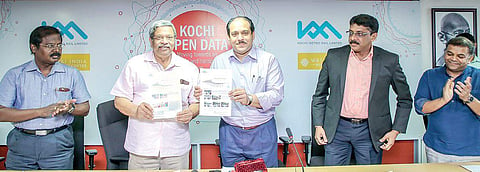

KOCHI: The Kochi Metro Rail Ltd (KMRL) has become the first metro agency in the country to adopt an open-data approach to improve access to its services. Information on scheduled stops, routes and fares have been converted into the universally accepted General Transit Feed Specification (GTFS) standard and will be available on the KMRL website. Smart City Kochi CEO Manoj Nair launched the open data in the presence of KMRL Managing Director A P M Mohammed Hanish, WRI India CEO O P Agarwal and WRI sustainable cities director Madhav Pai.
Open and helpful
Information about public transport services, such as stops, fares and service timings are crucial for commuters to plan their trips, whether for work, schools or for an emergency. Open transit data refers to making this information accessible for anyone to use, reuse and redistribute freely. To be truly open, transit data must be converted into a format that can be directly read by algorithms and computer programs and a globally accepted standard is the GTFS.
Going wide with transit data
The importance of transit data goes beyond commuters and the agency. Transit data is used to assist in decision-making in different spheres, such as the planning and implementation of feeder services. The mobile applications for commuters of different sections contribute to increasing the economic value of different parts of the city, allowing informed policymaking.
Commuters have it good
Making transit data open in a machine-readable format - for smartphones - gives developers, entrepreneurs, data analysts and others to build innovative mobile applications benefitting commuters in different ways. Applications can enable commuters to plan their trips more intelligently and reduce waiting times, thus increasing the uptake of public transport. Different commuter groups have specific requirements. Addressing these requirements becomes important to improve access to the commuters with disabilities, or for senior citizens.